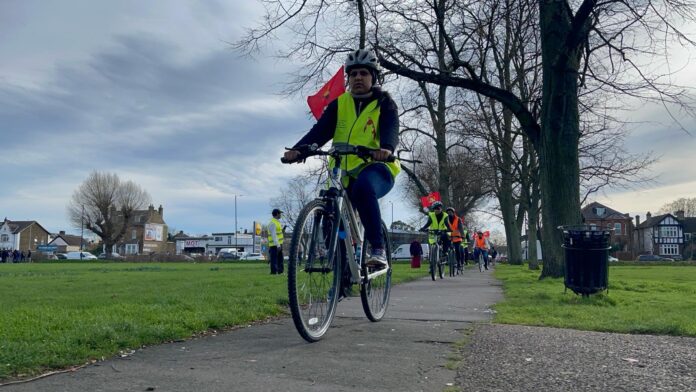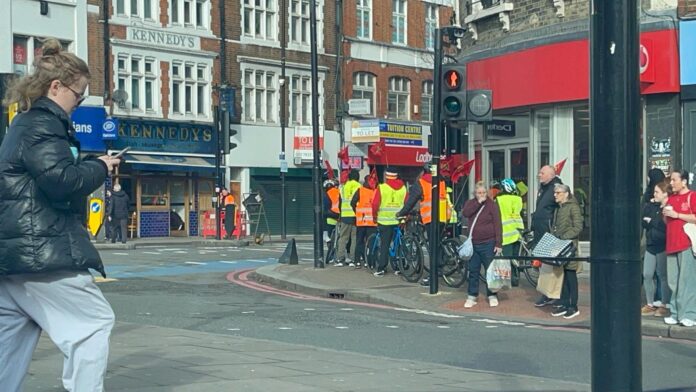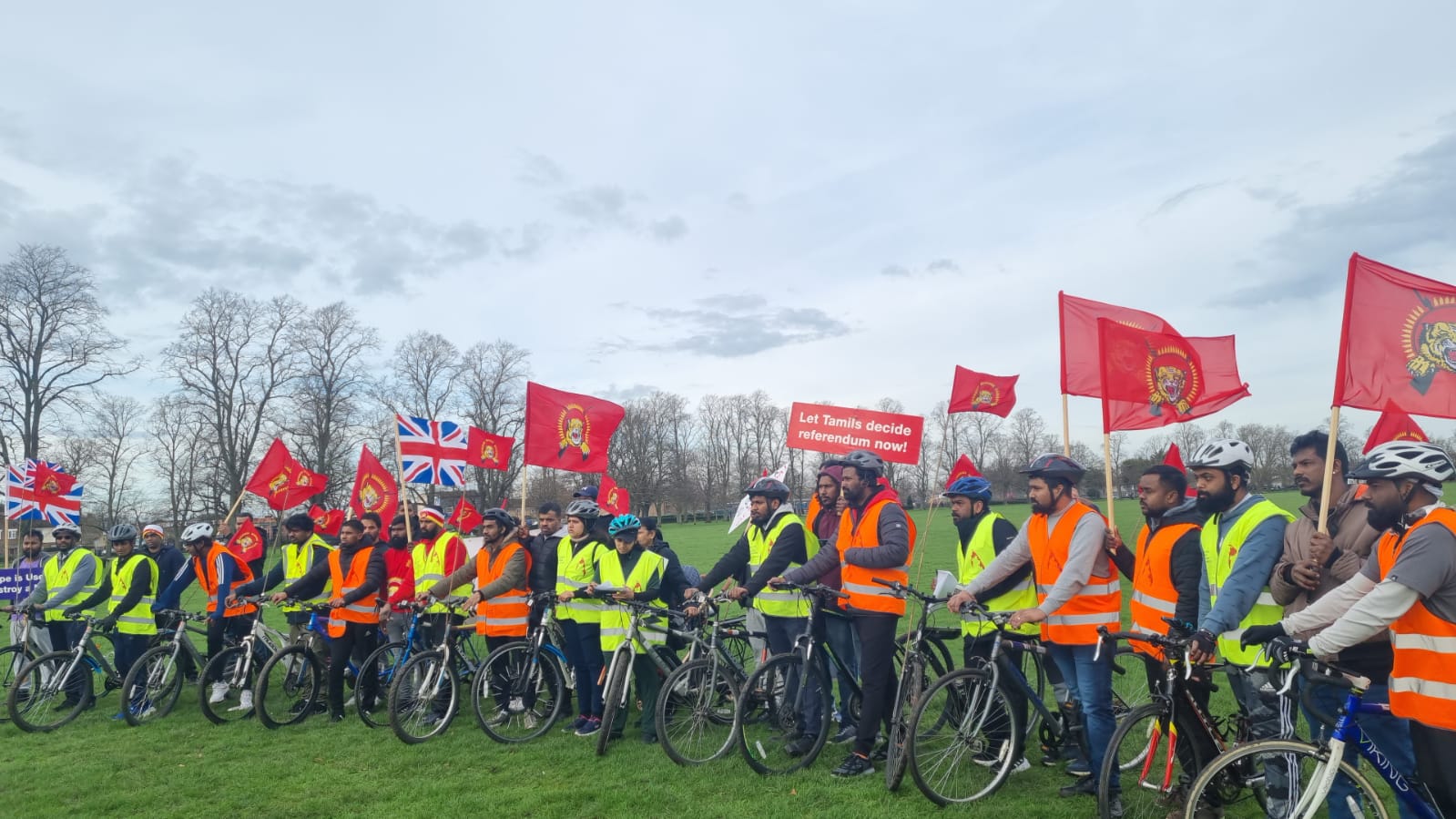All photographs courtesy of Thaarakam
A group of Tamil activists set off on their bicycles from London on Thursday 15 February and are cycling to Geneva, Switzerland where the United Nations Human Rights Council (UNHRC) are set to meet later this month.
The activists are cycling through Europe to reiterate Tamils' longstanding calls for an independent international investigation into the 2009 Mullivaikkal genocide which saw the killing of tens of thousands of Tamils by the Sri Lankan state.

Although this year will mark 15 years since the massacre, no one has been held responsible for the atrocities and victim survivors continue to seek justice and accountability for their forcibly disappeared relatives, many of whom surrendered to the state's forces at the end of the armed conflict.

The cyclists left Breda, in the Netherlands this morning and reached the border of Belgium. They will be travelling through Belgium and heading towards Luxembourg.

The group are expected to reach Geneva on the 4th March whilst the UNHRC hosts its 55th session where Sri Lanka is expected to present an oral update on its progress to the global human rights body.
In October 2022, the UNHRC adopted resolution 51/1 on Sri Lanka, which will “extend and reinforce the capacity of the Office of the High Commissioner to collect, consolidate, analyse and preserve” evidence that may be used in future war crimes trials.

The resolution maintains that evidence collected could be used in “relevant judicial and other proceedings”, including in courts around the world, to prosecute those accused of violating international humanitarian law.
Sri Lanka said it categorically rejected the resolution. Foreign Minister Ali Sabry slammed the resolution as "divisive and polarising" and claimed that he had confidence in domestic mechanisms.
In his last report, the High Commissioner Volker Turk wrote:
"Lack of accountability at all levels remains the fundamental main human rights problem. Whether it refers to war crime atrocities, post-war emblematic cases, torture and deaths in police custody, excesses in crowd control, corruption and the abuse of power, Sri Lanka suffers from an extraordinary accountability deficit that unless addressed will drag the country further behind."
We need your support
Sri Lanka is one of the most dangerous places in the world to be a journalist. Tamil journalists are particularly at threat, with at least 41 media workers known to have been killed by the Sri Lankan state or its paramilitaries during and after the armed conflict.
Despite the risks, our team on the ground remain committed to providing detailed and accurate reporting of developments in the Tamil homeland, across the island and around the world, as well as providing expert analysis and insight from the Tamil point of view
We need your support in keeping our journalism going. Support our work today.
For more ways to donate visit https://donate.tamilguardian.com.


